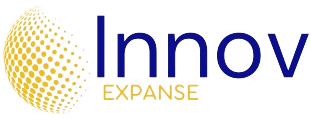For a long time, Intuit’s QuickBooks has been a staple in business accounting, offering various versions that suit different business needs. Among these are QuickBooks Payroll and QuickBooks Enterprise, each having distinct functionalities and features to meet the requirements of different scales and types of businesses.
Powerful And Flexible: Quickbooks Enterprise
QuickBooks enterprise was introduced in 2002 as a sturdy desktop solution tailored for larger companies with extensive accounting needs. Unlike the online option, Enterprise is locally installed on your company servers which offer enhanced security -ideal for businesses that handle sensitive data such as Personally Identifiable Information (PII).
Key Features of Quickbooks Enterprise
Advanced Inventory Management: This can handle up to 100k stock items along with advanced tracking and managing capabilities; hence enterprises that have large quantity of inventory can use it.
Scalability: Additionally, this version is scalable since it can accommodate up to 30 users simultaneously thus suitable for big operations where many people need access to the system.
Security: Local installation enhances security against cyber threats, providing peace of mind for businesses prioritizing data protection.
On the other hand, QBO is a cloud-based SaaS service provided by Intuit targeting small and mid-sized businesses. It can be accessed via any web browser or mobile app enabling users to manage their finances on the go.
Key Features of Quickbooks Online
Cloud Accessibility: Allows modern-day mobile entrepreneurs access financials anywhere anytime through internet connection (this device flexibility thereby ensuring mobility)
Cost-effective: The monthly subscription fee for QBO is lower than its counterpart – enterprise; therefore startups prefer it due to less cash outflow in terms of subscriptions.
Feature Parity: However cheap this might be there should not be worry about missing out since it has almost the same features as Quick Book Enterprise including payroll management and advanced reporting capabilities.
Enterprise vs. Online: Cost Comparisons
Cost Comparison
While QuickBooks Online has a lower upfront cost, especially for individual users and small teams, the expense can rise when there are more users and additional features like payroll management. The initial price tag of QuickBooks Enterprise might be higher but it could prove to be a cheaper option for large businesses in the long term due to its discounts and offers.
Additionally, QuickBooks enterprise provides a discount for multiyear subscriptions up to 20% in savings from buying on an annual basis. This allows companies to plan their finances better with stable pricing as opposed to unanticipated price surges.
Reporting Capabilities
QuickBooks Enterprise: It comes with more than 150 pre-built reports including industry-specific ones and advanced reporting editions that are focused at various financial measures for comprehensive business analysis purposes.
QuickBooks Online: Provides 65 standard reports through its interactive dashboard. Though they provide key financial insights, they cannot provide the depth needed to analyze complex issues like job costing or profit forecasting.
Inventory Management
QuickBooks Enterprise: For stock items exceeding 10,000 (100,000), this software provides a sophisticated inventory tracking system.
QuickBooks Online: This is sufficient for smaller operations with only basic inventory management capabilities but unsuitable for enterprise versions with scalable and enhanced functionality.
Choose the Right Match
Basically, the selection between QuickBooks Payroll and QuickBooks Enterprise depends on the size of your business enterprise, its operations needs, and budgeting issues.
In terms of scalability, security and advanced inventory management, QuickBooks Enterprise is superior hence it is suitable for bigger businesses that have complicated financial requirements.
On the other hand, QuickBooks Online provides such advantages as cost-effectiveness, accessibility and flexibility making it a preferable choice for start-ups or small businesses.
Benefits of Payroll Software
Time Efficiency
Payroll software automates other time-consuming chores like calculating wages, deductions and taxes, and checks the manual effort required for payroll processing. It saves time and allows HR and payroll teams to concentrate on more strategic tasks.
Accuracy and Compliance
Automated calculations decrease human errors during payroll processing. It also ensures that tax laws are complied with as well as regulations and reporting requirements hence reducing risks of penalties or wrong filings that can lead to audits. You should also implement employee monitoring tools like Controlio to track your employees.
Cost Savings
Through streamlining payroll processes and cutting down on the number of mistakes made in them, payroll software helps businesses save money associated with manual payroll processing such as labor hours, printing costs, fines that may arise due to compliance failures.
Employee Satisfaction
Employee satisfaction is enhanced by accurate and timely payroll processing. Payroll software ensures employees receive their payments correctly as well as promptly which results in improved morale besides reducing issues linked to discrepancies in payrolls.
Enhanced Security
Payroll software employs advanced security measures including encryption, secure servers, access controls among others to protect highly sensitive employee data from any unauthorized access thus ensuring its confidentiality.
Reporting and Analytics
Payroll systems generate extensive reports as well as analytics on expenses incurred through salaries, amounts earned by employees, taxes and benefits accrued thereby enabling companies use these insights for making informed decisions concerning cash flow management and financial forecasting.
Scalability
Payroll software is scalable so it can grow with your business or change when there are changes in your workforce size. Hence it can easily add extra workers , independent contractors or different pay structures are adopted which gives flexibility while a company expands.
Integration with HR and Accounting Systems
A lot of the available solutions for payroll incorporate smoothly with HRM’s as well as accounting programs.This way it makes it easy for information to be exchanged between departments minimizing double entries into the system thus improving general organisation efficiency.
Most modern payroll software comes with self-service portals. Workers can access their own payroll information, check out pay stubs, and manage their benefits. It makes HR teams’ administrative burden lighter and allows employees to self-manage.




0 Comments